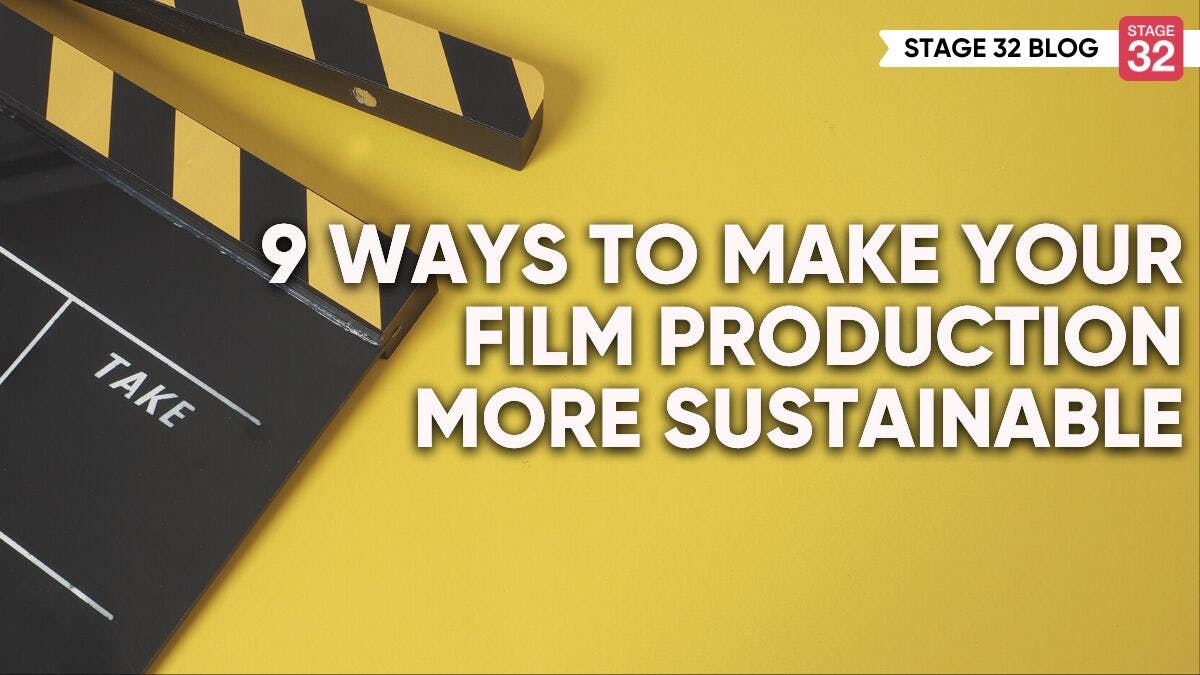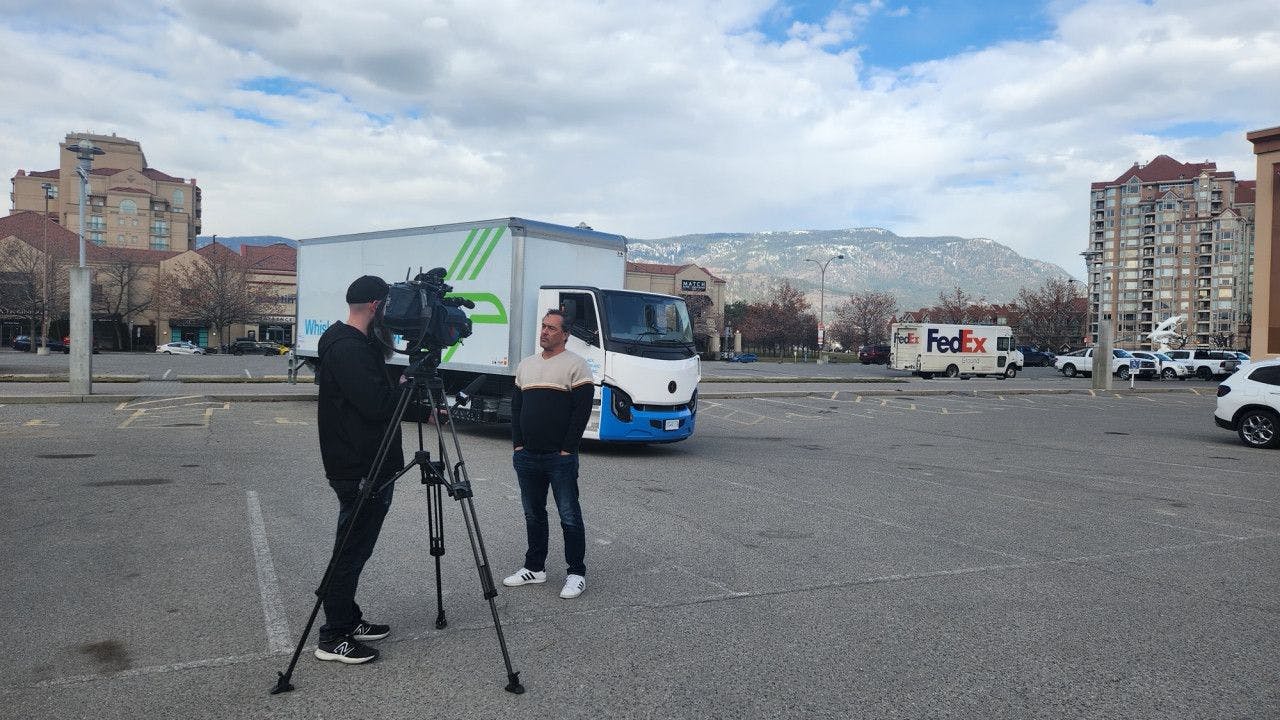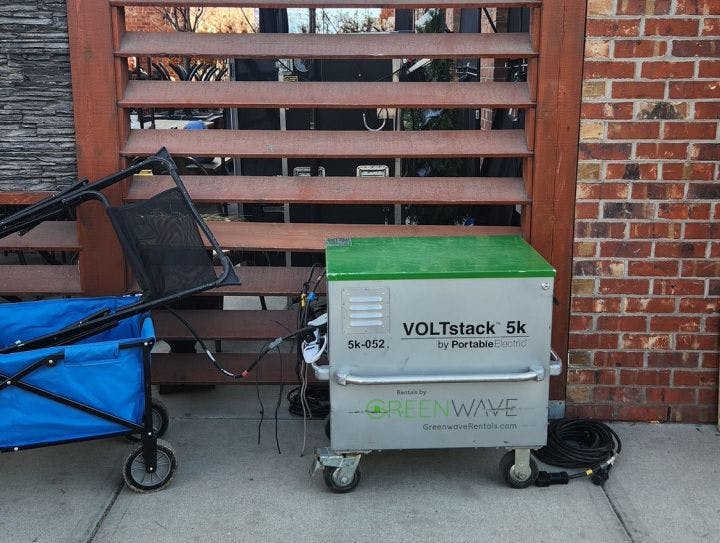9 Ways To Make Your Film Production More Sustainable

9 Ways To Make Your Film Production More Sustainable

As the world becomes increasingly aware of the impacts of climate change, individuals and industries alike are seeking ways to reduce their carbon footprint. The film industry is no exception, with many professionals and companies taking steps to minimize their environmental impact.
As a 30-year veteran in the film industry and a 6-year neophyte in sustainability, I've seen firsthand the need for sustainable practices in film production. It's no secret that the industry is known for its lavish sets, elaborate costumes, and excessive energy usage. However, with the right education and tools, we can make a significant difference in reducing our environmental impact.
So, what are some of the ways that we can reduce our carbon footprint in the film industry? Here are a nine strategies we know of so far:
Use Renewable Energy Sources
One of the biggest sources of carbon emissions on a film set is the energy required to power lights, cameras, and other equipment. By using renewable energy sources like solar or wind power, we can significantly reduce our carbon footprint.
Reduce, Reuse, Recycle
One of the most effective ways to reduce the environmental impact of a production is to reduce waste. Encourage your crew to bring reusable water bottles and coffee cups, use refillable ink cartridges, and recycle whenever possible. Provide recycling bins on set and make sure they are clearly labeled.

Use LED Lighting
Traditional lighting fixtures can be energy-intensive and generate a lot of heat. Switching to LED lighting can significantly reduce your energy consumption and costs. LED lights are also more durable and can last up to 25 times longer than traditional lights.
Mobile chargers and batteries are quickly becoming as commonplace as a dolly or jib arm - offsetting hours of generator emissions and noise.
Go Paperless
In today's digital age, there is no need for paper scripts, call sheets, or production schedules. Instead, use digital tools to share information and communicate with your crew. Consider using apps like Google Drive, Dropbox, or Trello to manage your production workflow.
Optimize Transportation
Film productions require a lot of transportation, from moving equipment to transporting actors and crew members. By using fuel-efficient vehicles, carpooling, and public transportation, we can reduce emissions from transportation.
Use Electric Vehicles
Transportation is a major contributor to greenhouse gas emissions. To reduce your carbon footprint, consider using electric vehicles on set. Electric trucks, buses, and golf carts are becoming increasingly popular in the film industry, and they can significantly reduce your emissions. By using EVs, or electric vehicles, we dramatically reduce a show’s carbon footprint by very significant factors. I created a company, Whiskey Jack Transport and Technologies, in response to this need and am proud that we pioneered EV usage in 2023 having been the first movie in North America to use EVs on a movie set successfully.

Implement Sustainable Set Design
Sets can be a major source of waste, with many materials used only for the duration of the shoot. By using sustainable materials and designing sets with reuse and recycling in mind, we can reduce the amount of waste generated. More and more recyclable options for flats, props, and set decoration are accessible in major film centers like Vancouver.
Offset Your Carbon Emissions
Even with the best sustainability practices, it can be difficult to completely eliminate your carbon footprint. Consider partnering with a carbon offset provider to offset the emissions that you cannot reduce. Carbon offsetting involves investing in projects that reduce greenhouse gas emissions, such as renewable energy, forestry, and energy efficiency projects.
Minimize Single-Use Plastics
Plastic waste is a significant problem, and the film industry is no exception. By using reusable water bottles, coffee cups, and food containers, we can reduce the amount of single-use plastics generated.
I personally believe that sustainable practices not only benefit the environment but also make good business sense. By implementing carbon reduction strategies, film productions can save money on energy and waste disposal costs, while also attracting eco-conscious consumers.
We're also interested in exploring future technologies that can help us further reduce our carbon footprint. These might include things like carbon capture and storage, sustainable fuel alternatives, and advanced recycling technologies. By staying up-to-date on the latest innovations, we can continue to make progress toward a more sustainable future.
In conclusion, the film industry has a significant opportunity to reduce its carbon footprint and contribute to a more sustainable future. By implementing strategies like using renewable energy sources, optimizing transportation, implementing sustainable set design, and minimizing single-use plastics, we can make a meaningful difference.
Let's hear your thoughts in the comments below!
Got an idea for a post? Or have you collaborated with Stage 32 members to create a project? We'd love to hear about it. Email Emily at blog@stage32.com and let's get your post published!
Please help support your fellow Stage 32ers by sharing this on social. Check out the social media buttons at the top to share on Instagram @stage32 , Twitter @stage32 , Facebook @stage32 , and LinkedIn @stage-32 .
About the Author

Gilles LaPlante
Producer
Gilles Laplante has led an impressive career as a film and television producer with over 30 years of experience in the entertainment business. With over 100 credits to his name, Gilles has been a driving force in Vancouver’s film industry. Over the course of his career, he has moved from independent...





